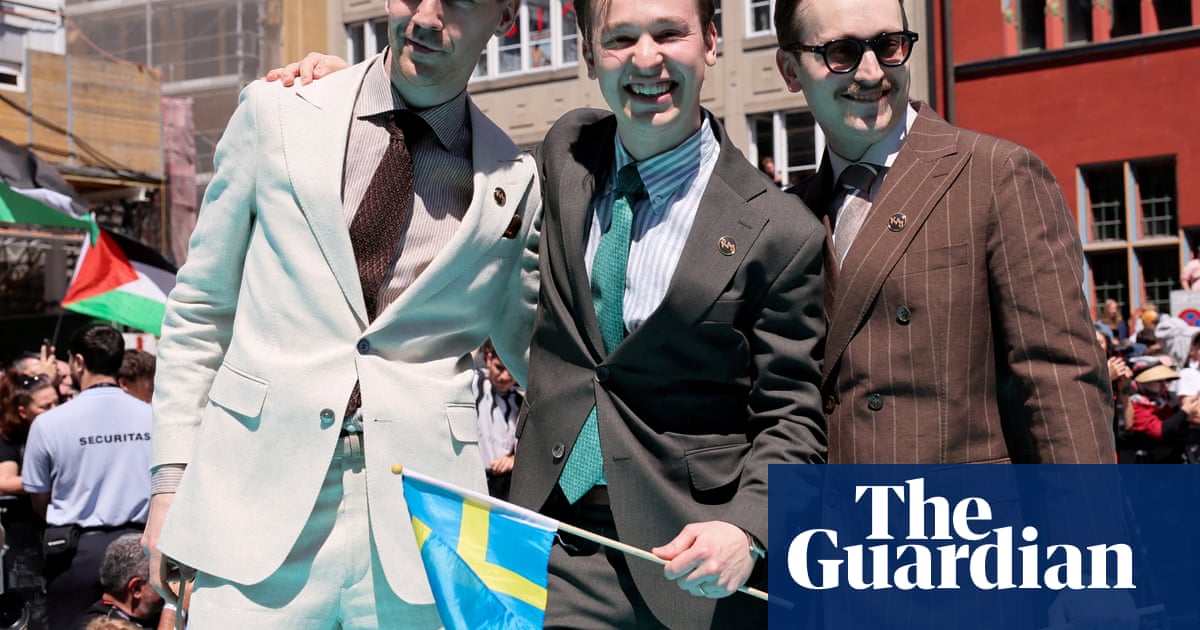There are still several days to go until theEurovisionfinal in Switzerland, but the Swedish city of Malmö has already pre-emptively said it does not want to host the event again next year if the country’s hotly tipped sauna-themed entry wins this year’s contest.
The song – calledBara bada bastu(Just sauna) – is top of the streaming charts in Sweden andFinlandon Spotify and is a favourite to win Saturday’s final in Basel.
It is performed by the Finnish group KAJ, who are among Finland’s Swedish-speaking minority, and includes the lyrics “Just sauna, sauna / Steam it up, until the sweat just sprays”.
But if KAJ are triumphant and the hosting rights to next year’s competition fall toSweden, Malmö has ruled out reprising its host city role from 2024 – where the city became the venue for several large demonstrations against Israel’s participation and the policing bill more than doubled from the original budget to 92m kroner (£7m).
The same city hosting the contest multiples times is not unknown in Eurovision. Dublin was the host city in 1994, 1995 and 1997 – a 1990s Irish run that began with the town of Millstreet in County Cork staging it in 1993. Ireland and Sweden have both won and hosted the contest seven times.
Anna Wittgren, Malmö city’s head of marketing, said policing costs were not a factor in its decision because that bill was not picked up by the city. Rather, she said, it was too big an event to host every two years.
“We did very well last year and now we’re passing the baton on if it becomes necessary,” she said. “The Eurovision song contest is exceptional in that you only have 10 months to organise and put on a global event and we need to have it a little less frequently than every two years.”
The city was “enormously proud” of last year’s event, she said, in which “we showed that in the spirit of democracy we could house both protests and a world-class event in safe and secure ways for all participants”.
Gothenburg, Sweden’s second-largest city, and Örnsköldsvik have been tipped as potential hosts in the event that KAJ should win.
As well as promoting the merits of sauna culture, Sweden’s entry also puts the spotlight on Finland’s 290,000 Swedish-speaking population and the Vörå dialect spoken in the bilingual Finnish municipality where KAJ are from.
Use of the Swedish language in Finland dates to at least the 12th century and remains an official language of Finland.
Finland was part of the Swedish kingdom between 1323 and 1809, when it was captured by Russia and became part of the Russian empire until Finland declared independence in 1917.
